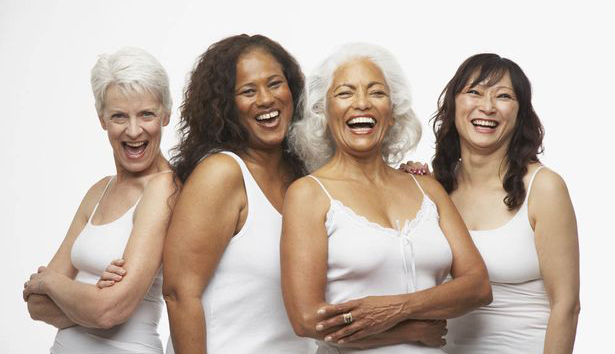 Between 2010 and 2011, I interviewed women over 60 to understand their experience of aging and the impact their religious beliefs had on how well they aged. It was a study conducted for my doctoral dissertation on spirituality and aging. I wanted to understand how someone’s faith impacted their experience as they aged. The results were amazing.
Between 2010 and 2011, I interviewed women over 60 to understand their experience of aging and the impact their religious beliefs had on how well they aged. It was a study conducted for my doctoral dissertation on spirituality and aging. I wanted to understand how someone’s faith impacted their experience as they aged. The results were amazing.
I conducted in-depth interviews with women from across north Georgia who lived as far south as Newnan and as far north as Waleska. These women differed from each other in a number of ways. Some were married, others were widowed or divorced. Some were white, some were African American. Most were mothers and grandmothers but a few had no children at all. Some happily embraced the use of Botox or sculpturing or hair coloring while others refused to try any anti-aging products. They came from a wide range of socioeconomic levels and lived in very different homes. Some were working, some had retired, and some were into encore careers. But the women in my study had one thing in common. They all were part of a common religious community and shared a similar spirituality.
I recruited the women from three different church congregations in the Atlanta metro area. The beliefs they had in common were these: They believe that God is within each individual. Their faith maintains that through conscious choice of thoughts, words, and behaviors, they can tap the divinity within to change the circumstances of their bodies and their lives. They believe that rather than being simply human, they are spiritual beings having a human experience. And they have an understanding that there is an eternal reality beyond what the five senses can perceive.
So how does such a spirituality affect the way in which these women age? How do their beliefs impact their ability to cope with the challenges faced as they grow older? That was what I set out to explore through this study.
The women I interviewed had experienced many of the normal changes associated with aging, such as loosening skin, weight gain, graying hair, and memory issues. They also described changes in sleep, eyesight, and social relationships. But the way they perceived their experience of aging seemed to make a meaningful difference in four ways:
- First, the women feel personally responsible for the circumstances of their lives and find meaning in aging challenges. One participant said, “You can create the reality you want.” Some would call this optimism or a form of positive thinking. Interestingly, research shows that both contribute to better aging and health.
- Second, they believe that where they focus their attention is what they will experience more of, so they don’t accept the negative stereotypes about aging promoted in the media. They are convinced that the thoughts and words that dominate a person’s mind lead to self-fulfilling prophecies. For example, repeatedly saying “I’m too old for that” can cause a person to live as if it’s true, prematurely limiting them and restricting their life. Instead, these women affirm a more positive and fulfilling future for themselves. One of the women said, “I never want to stop learning and challenging myself.”
- Third, the women have faith that they are more than a body, and are therefore not afraid of aging. Believing that their spirit never dies helps them to not be so attached to the changes in their bodies. As one woman put it, “I honestly have embraced my own changes in my body. I have.” She continued, “…by affirming daily that I am a spiritual being in this human body, this earthly suit, I know that my spirit will never end. That gives me comfort.”
- Finally, these women believe that what they perceive with the five senses does not represent the ultimate reality. Envisioning life beyond the physical, they believe that as they age, life gets better, even with its challenges. One woman said, “It makes for a very adventurous journey on the path. And you never exactly know where you’re going, but it’s all good.”
The women in my study embrace their aging fully. One participant said, “You can do anything at any age. You have something to contribute until you die.” Another woman explained it by starting with how she had viewed getting older when she was younger: “For me, aging was just an exciting thing, and it’s been exactly that. Every decade has been better than the one before.” A third woman said, “I can’t wait to be 85 and see what that looks like!”
So what did I learn from the women in my study? Their passion and devotion to living—and not simply talking about—their spiritual beliefs has led to them hold a more positive outlook on aging and feel empowered to influence their well-being as they continue to get older. Researchers have found that a positive attitude about aging contributes to living longer with greater health. Having the kind of spirituality these women shared seems to center them and give them a solid foundation from which to deal with the ups and downs of growing older. As one woman put it: “I really don’t know what the future holds. There’s a part of me that occasionally wonders. There’s a bigger part of me that has a lot of trust and faith that it’s all divinely guided.”



